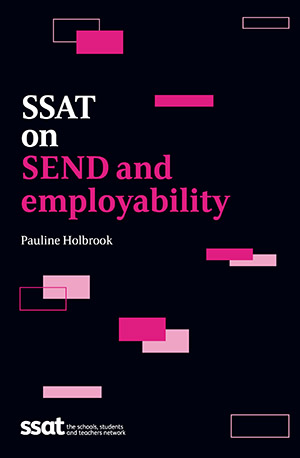
It’s not right that so few young people with SEND are able to gain employment – especially as those that do, often become valuable employees, as well as gaining fulfilment.
Pauline Holbrook has written from the premise that all learners have the ability to learn and that we need to have high aspirations for each and every learner and acknowledge that employment is a real possibility. This pamphlet is designed to encourage discussion about employability and gives many examples of how schools can support SEND learners into the world of work.
Skills such as using public transport, handling money, understanding body language and how to behave in a work situation need to be explicitly taught to the majority of SEND learners and therefore need to feature within their personalised learning offer.
A key role of schools is to prepare students for the next steps on their life journey. Sue Williamson in SSAT’s Fighting for Deep Social Justice pamphlet emphasises the school’s role in ensuring that all learners, whatever their ability or context, leave school fully prepared to lead fulfilled and purposeful lives.
SSAT believes that schools should have high aspirations for all learners and that the achievements of all learners should be celebrated not just those who achieve 5 good GCSE’s. For SEND learners we must ask ourselves what is an appropriate curriculum offer? How can we include aspects of work-related learning? What are the learner’s aspirations and what can we do to help them achieve them?
This publication is FREE for SSAT members: Download from the Exchange.
Physical copies are also available: Order now.
SEND and Employability webinar
To mark the publication of SSAT’s latest pamphlet, author and Head of SEND networks Pauline Holbrook was in conversation with Director Angelina Idun. SSAT members can watch now.
Not an SSAT member? Find out more about SSAT membership.
